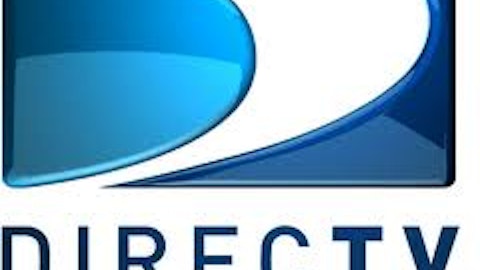For the first time since going public last year, Facebook Inc (NASDAQ:FB) held an annual shareholders meeting to discuss the future of the company with its rather angry shareholders. Many will remember that Facebook went public last year with high expectations and an even higher valuation, but face-planted right out of the starting gates and didn’t recover the way it needed to. Now, with the stock at around 40% of what it was at the time of the initial offering and investors wondering whether the stock is worth keeping, Facebook Inc (NASDAQ:FB) had a few questions that it needed to answer.
Do you have to change your fundamental strategy?
Despite the stock’s downturn, there isn’t much evidence that Facebook has to change the way it operates. The social networking site has been able to move into the mobile arena with some success, even though the Facebook Home application was a miss. Despite that setback, 30% of advertising sales for Facebook Inc (NASDAQ:FB) now come from mobile sources, and mobile users make up 59% of the site’s active users. This is important for Facebook because it signifies that while there are some hiccups in the transition to mobile social networking, it is still worthwhile to pursue and fine-tune it as a means of generating revenue.
Facebook was also quick to point out that it has had two straight quarters of profitability after initial losses, though it is still dealing with over $3.339 billion in total liabilities and nearly $1.92 billion in long-term debt. This needs to come down for Facebook to get its stock price back to its initial price, but if the company has been profitable then this should be only a short-term problem.
What role did you have in the government data grab?
Privacy concerns have been the hot-button issue in the tech industry for a few weeks now, once it was revealed that the National Security Agency has been taking metadata from cell phone companies for security reasons. The political fallout of this is still developing as more people question the sacrifices of personal privacy in the name of national security. An even bigger fallout could occur with telecommunications companies that have to explain their behavior during these searches.
According to Facebook Inc (NASDAQ:FB) CEO Mark Zuckerberg, the company only complies with the “minimum amount of information” that the government requires. Zuckerberg stressed that privacy is the primary goal of the company (at least where the government is concerned), though how much data was voluntary handed over remains to be seen. This poses a risk for the company because few people will be interested in giving it their private information if they can’t be sure that the data isn’t being given to the government. This is a much more realistic concern since the NSA leaks surfaced.
How much of a threat is Google+?
When I first read about concerns over Google Inc (NASDAQ:GOOG)‘s Google+ service, I didn’t think that it was even worth bothering about for Facebook Inc (NASDAQ:FB). There is apparently some cause for concern among shareholders, though, since it was brought up during the shareholders meeting.
Mr. Zuckerberg said that the company isn’t concerned about Google+, however. He explained that social networking isn’t a “zero sum game” as some think, saying that there is room for two social networking companies to co-exist.
According to the latest user figures, Google+ has become the second most used social platform by active users. It is well behind Facebook, registering only 343 million active users to Facebook Inc (NASDAQ:FB)’s 643 million. Google Inc (NASDAQ:GOOG)’s strength is that while it might not be able to compete with Facebook in terms of users, it can beat Facebook in terms of generating online ad revenue.
Google has been working on merging all of its services into a single cloud computing model. By doing this, services like Google Docs, YouTube, Gmail, and the extensive Android phone line can all be merged into one data bank for advertisers that allows them to target specific clients across all services. This makes advertising easier on Google Inc (NASDAQ:GOOG) than on Facebook, which has just the one site and its mobile operations; this is especially important as advertising is the main source of revenue for both companies. Google+ may be secondary in terms of active users, but it is part of the Google cloud that advertisers love and this gives Google an advantage over Facebook.
So while Facebook Inc (NASDAQ:FB)’s status as king of social networking might not be in doubt, Google stands to make a lot more money off advertising across all services. This makes it a better advertising opportunity for companies than Facebook in the long run.
Is it a bargain at $24 per share?
Despite Facebook’s initial problems, there are still investors who are willing to buy into the company as it continues moving towards becoming a business rather than just a website. At $24 per share, the company’s stock might seen like a bargain compared to what it sold for initially. Stock price alone doesn’t make it a bargain, however.
It certainly wasn’t a bargain initially, owing largely to a $104 billion initial valuation that in hindsight seems to be more about shock value than an actual serious number. It also started out with an atrocious price-to-earnings ratio of 515, meaning that this company was too expensive for what investors could get out of it in return. It also had a negative cash flow of $59 million last quarter, though it ran a $719 million profit from operations initially.
Today Facebook’s forward price-to-earnings ratio is much more reasonable at 30.82, though it’s still on the high side compared to Google’s 16 forward price-to-earnings ratio. Facebook Inc (NASDAQ:FB)’s profit margin is a rather minimal at 1.22%, though its operating margins are a solid 9.66%; this means that Facebook has good operating margins, but its profits leave little room for error as a result of high liability and debt levels.
So even though Facebook is becoming more of a bargain, it still isn’t a bargain that most investors will want to snap up at this time. For those that are optimistic enough about the company to look past the risk, however, the price is definitely low enough for them to take the chance. Google appears to be the real bargain between the two as it has more ways of making money through sales and continued development. Facebook may get better once it fine-tunes its business operations. For now, though, it isn’t exactly a winner.
The article Mark Zuckerberg Meets His Critics originally appeared on Fool.com and is written by John McKenna.
John McKenna has no position in any stocks mentioned. The Motley Fool recommends Facebook and Google. The Motley Fool owns shares of Facebook and Google. John is a member of The Motley Fool Blog Network — entries represent the personal opinion of the blogger and are not formally edited.
Copyright © 1995 – 2013 The Motley Fool, LLC. All rights reserved. The Motley Fool has a disclosure policy.






